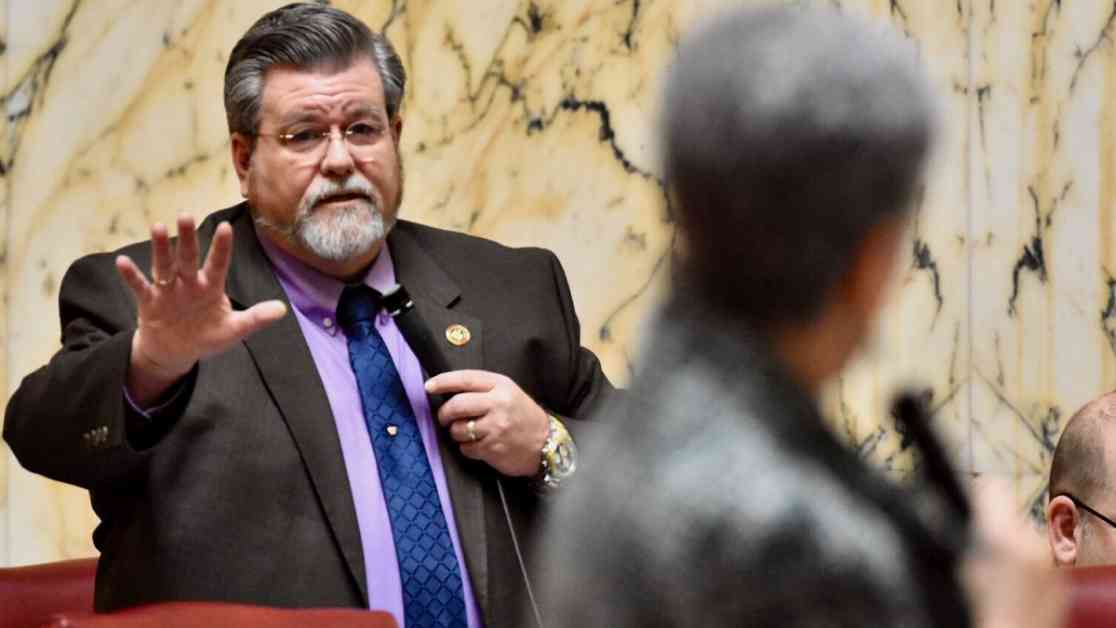Republican Senators Express Concerns Over Maryland Bill
In a recent development in the Maryland Senate, Republican Senators Mike McKay of Western Maryland and Chris West raised concerns over a bill introduced by Sen. Cheryl C. Kagan, a Democrat from Montgomery. The 18-page bill focuses on making technical changes to state law by incorporating gender- and religion-neutral terminology. While Kagan emphasized that the bill was aimed at enhancing inclusivity and diversity, McKay and West expressed fears over the potential consequences of the bill.
The Controversy Unveiled
The controversy began when McKay and West scrutinized a committee amendment attached to the bill. The specific language in question—“any other religious society or congregation or any sect, order or denomination”—raised red flags for the Republican senators. McKay, in particular, contemplated whether the bill could inadvertently lead to the recognition of groups like the House of Satan or the Zizians, a cult-like organization with recent criminal ties.
Both senators delayed a preliminary vote on the bill, citing concerns about the expansive scope of the committee amendment. McKay’s reference to The Satanic Temple and other fringe religious groups underscored the underlying apprehension that the bill could potentially legitimize controversial organizations. Despite Kagan’s reassurance that the bill was not intended for such recognition, McKay and West remained skeptical.
Expert Insights and Clarifications
In response to the senators’ apprehensions, Kagan clarified that the bill was primarily aimed at updating Maryland law to reflect the spiritual diversity of the state. She highlighted the need to replace gendered terms like “clergymen” with more inclusive language to ensure that all religious institutions felt represented and respected.
McKay’s concerns, rooted in a legal case involving The Satanic Temple in Indiana, shed light on the potential implications of the bill beyond its intended scope. His reference to the Temple’s legal battles with government entities over religious displays underscored the underlying tension between religious freedom and state recognition.
West’s search for “weird organizations” under the term “faith institutions” during the floor debate revealed his apprehension about the bill’s language encompassing fringe groups like the Fellowship of ISIS, Dianic Wicca, and the Assembly of Christian Soldiers. His proposed amendments to narrow the bill’s focus to major religious denominations highlighted the delicate balance between religious inclusivity and potential recognition of controversial sects.
A Path Forward
As the debate over the bill continues, McKay and West have indicated their intent to propose alternative amendments to address their concerns. West’s emphasis on defining sects based on Maryland membership numbers and excluding “weirdo sects” suggests a nuanced approach to safeguarding against unintended repercussions.
Kagan’s commitment to fostering inclusivity and diversity in the religious landscape of Maryland underscores the bill’s underlying purpose. While the concerns raised by McKay and West reflect a cautious approach to legislative changes, the collaborative dialogue surrounding the bill highlights the complexities of balancing religious freedom with legal definitions.
As the Senate prepares for further deliberations on the bill, the careful consideration of expert insights and senatorial perspectives will play a crucial role in shaping the future of Maryland’s legal framework. Amidst the differing viewpoints and apprehensions, the pursuit of a more inclusive and reflective legal language remains at the forefront of the legislative discourse.















